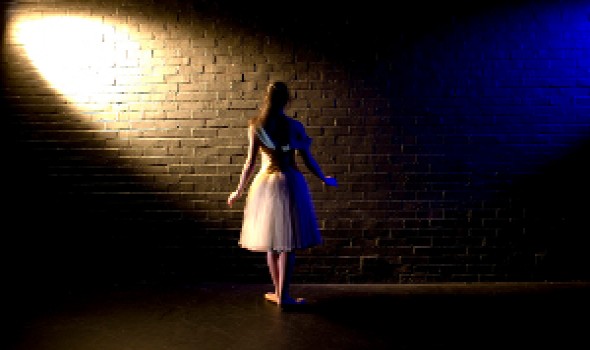Strictly come dancing
Strictly come dancing

Swan Lake in rehearsal; the agony of dancers with injuries and aching limbs, struggling with a demanding ballet and an aggressive director. Off-stage, unseen immigration officials execute a perfect faux pas when they fail to grant the star of the show, Russian ballerina Polina Semionova, a visa to enter Britain in time for the opening night.
Czech-born Daria Klimentová stepped in save the day and English National Ballet’s performance at the Royal Albert Hall received ecstatic reviews.
But the treatment of artists such as Semionova by the UK Borders Agency is not unique.
In 2009, Iranian director Abbas Kiarostami cancelled plans to direct Così Fan Tutte for English National Opera after a visa was first granted then withdrawn. Last year Russian-born US poet Alex Galper was put in a cell and deported after coming to Britain to read his poems at a charity event.
It wasn’t always like this. For centuries Britain has been at the crossroads of dance, and both cultural “importer” and “exporter”. What if, in centuries past, national borders had been closed to dance and dancers? What would dance look like today?
The only dancing in England, a friend suggested, would be Morris dancing: men in bells, waving sticks at each other. But is Morris dancing actually English? Some think it is based on the court dances of medieval Europe, others that the quaint English dance comes from Spain where it marked thattles in which Catholics defeated Moors. Or the other way around.
Clog dancing was a byproduct of Britain’s Industrial Revolution. Wooden-shod workers were gathered in the mines and factories of Scotland, Wales and urban north England. British and Irish migrant workers took clog dancing to North America, where it met the juba dancing of West Africa and the plantation dances of slaves.
Popular dance metamorphosed. In 1842 Charles Dickens’s American Notes described a performance by the legendary Master Juba,
stage name of African-American William Henry Lane, and, according to Dickens, “the greatest dancer known.”
Lane’s performances in London and his tour of England and Scotland in the late 1840s caused a sensation. It could, as one critic put it, “only be believed by those who have been present”. But descriptions of the speed, precision and sound of his steps underscore the reasons for Master Juba’s reputation as the founding father of tap.
London’s music halls and theatres were also home to ballet in the 19th and early 20th centuries. Born in Renaissance Italy but using the language of France, ballet had rapidly spread through Europe, Russia and beyond.
With notable exceptions, much 19th century ballet in England relied on European exiles and émigrés to bring new music and choreography and to take principal roles.
War in Europe brought refugee Georges Jacobi to London where he composed and conducted for numerous West End ballets before becoming a professor at the Royal Academy of Music. Adeline Genée, co-founder and first president of what is today Britain’s Royal Academy of Dance, was born
Anina Jensen in Denmark and made her professional debut in Oslo.
After the Russian revolution, the legendary Ballets Russes (Russian Ballets), was based in Monaco and performed at length in Britain. Now legendary international names were associated with the Ballets Russes and its productions – Nijinsky, Stravinsky, Picasso. The strength of this Russian-international brand help explain why British dancers of the 20th century, including Alicia Markova and Ninette de Valois, who danced with the Ballets Russes, assumed foreign stage names.
British dance has proved a highly successful export, whether through international tours of ballet or musicals, through the Royal Academy of Dance
syllabus taught all over the world by Genée’s successors, or through lucrative sale of licences for the BBC’s Strictly Come Dancing.
The British TV show format has been sold to 35 broadcasters in 75 countries, making it an important source of export earnings. But for the sake of dance and dancers – and their audiences – let’s hope Britain retains its reputation as a cultural crossroad. And that other countries take their attitude
to dance “import” and “export” from the Ballets Russes and the BBC, not the British Borders Agency.
Article by Sarah Davidson
With help from Susie Crow of Ballet In Small Spaces, Oxford


